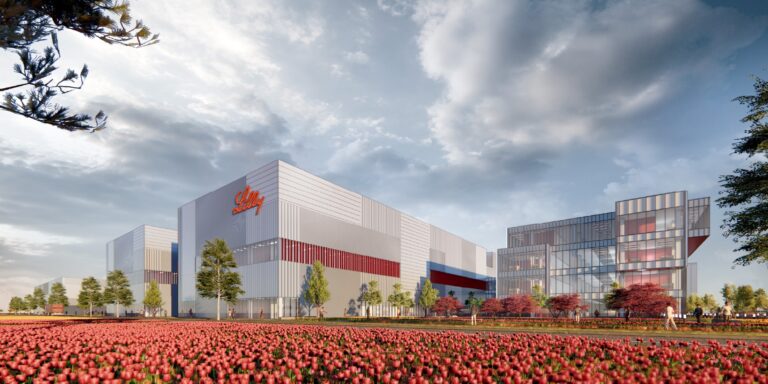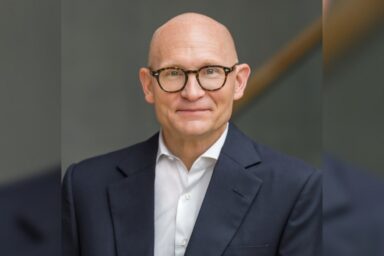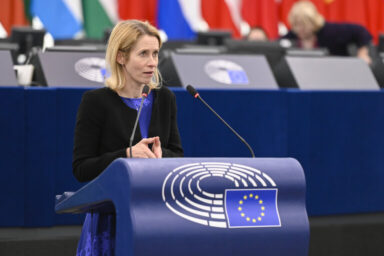Eli Lilly and Company’s decision to invest $3bn (€2.6bn) in a next-generation manufacturing site in Katwijk, the Netherlands, offers a counterpoint to the prevailing narrative of Europe losing ground in the global pharmaceutical race.
The move underscores how Europe’s industrial and scientific ecosystem continues to attract strategic, large-scale investments. Provided the policy environment remains stable, predictable, and innovation-friendly.
Lilly’s European expansion signals confidence in long-term demand for obesity treatments and in the EU’s manufacturing competitiveness. Industry observers expect others to follow as supply chain diversification becomes a strategic imperative.
We look forward to working closely with the EU, national and local governments to create a more favorable and predictable policy environment open to fully harnessing innovative medicines to deliver faster access to patients. – David A. Ricks, Chair and CEO, Eli Lilly and Company
A strategic vote of confidence in Europe
Lilly will construct a state-of-the-art facility within the Leiden Bio Science Park. It is one of Europe’s largest and most advanced life sciences clusters. The project will create 1,500 construction jobs and 500 high-skilled permanent roles. The facility will focus on manufacturing oral cardiometabolic, neuroscience, oncology and immunology medicines. And orforglipron, Lilly’s first oral small-molecule GLP-1 receptor agonist. Its experimental weight loss medicine.
Advanced automation, paperless production systems, and process analytical technologies will make the site one of Lilly’s most modern globally. In addition, the new facility will also complement the company’s existing European manufacturing footprint in France, Ireland, Italy, and Spain; moreover, it will strengthen capacity alongside additional facilities in Germany and Ireland. Furthermore, this expanded network will help enhance operational resilience and, consequently, support more efficient delivery of medicines across the region.
You might be interested
“Leiden Bio Science Park offers access to a skilled workforce, reliable infrastructure and proven pharmaceutical manufacturing capabilities. We look forward to working closely with the EU, national and local governments to create a more favorable and predictable policy environment open to fully harnessing innovative medicines to deliver faster access to patients,” said David A. Ricks, Chair and CEO, Eli Lilly and Company in a statement.
Lilly’s announcement provides a tangible illustration of the kind of strategic project Brussels wants to secure. High-tech, sustainable, and globally competitive manufacturing that anchors essential supply chains in Europe.
Europe’s industrial policy moment
The timing aligns with a crucial phase in EU pharmaceutical policymaking. The pharma package and the Critical Medicines Act aim to strengthen Europe’s ability to attract investment, reduce vulnerabilities, and drive innovation. Lilly’s announcement provides a tangible illustration of the kind of strategic project Brussels wants to secure. High-tech, sustainable, and globally competitive manufacturing that anchors essential supply chains in Europe.
“This is an investment with significant and tangible impact,” said Carla Vos, Managing Director of the Dutch Association of Innovative Medicines (VIG).
“It shows that the pharmaceutical sector in the Netherlands is committed to contributing to solutions: for patients, for the economy, and for Europe’s strategic resilience and autonomy.”
Why the Netherlands?
It’s highly worth noting that the Netherlands has become a magnet for life sciences investment due to its combination of research excellence, logistics infrastructure and regulatory credibility.
Ms Vos highlights Schiphol Airport’s international connectivity, the country’s dense innovation ecosystem, and the presence of the European Medicines Agency (EMA) as key advantages. “The Leiden Bio Science Park has grown into one of Europe’s largest centres for medical innovation,” she says.
“The combination of high-quality research institutions, strong infrastructure, and the presence of the EMA makes the Netherlands a natural location for investments by innovative medicine manufacturers.”
She adds that the long-standing notion of the Netherlands as the “gateway to Europe” remains fully relevant today:
“Together with a well-educated workforce and a strong track record in pharmaceutical production, we are well-positioned to host major pharma companies.”
Part of a global diversification strategy
The Katwijk investment is part of a broader manufacturing expansion across Lilly’s global network.
Lilly has been on a manufacturing sprint. From a $1bn expansion in Ireland to new injectable facilities in Germany, alongside two U.S. “mega-sites” in Virginia and Texas and major upgrades in Puerto Rico. This global build-out strengthens its supply chain resilience amid broader industry-wide onshoring trends.
These expansions reflect a sector-wide shift. Companies are distributing production across regions to reduce risk and meet explosive global demand for diabetes and obesity treatments.
“Expanding our capabilities in Europe strengthens our global supply chain. And it reflects our commitment to getting innovative treatments to patients who need them,” said Edgardo Hernandez, EVP & President, Lilly Manufacturing Operations.
Europe remains a manufacturing anchor
Lilly’s investment reinforces a broader shift; in fact, Europe’s competitive edge increasingly lies in high-tech manufacturing, supply-chain resilience, and scale-up capacity and therefore not only in early-stage discovery. Additionally, as the EU hopefully finalises the Pharma Package and advances the Critical Medicines Act, Lilly’s €2.6bn commitment further illustrates how, with the right conditions, Europe can still anchor the next generation of global medicines production. As a result, the region is positioning itself to remain competitive in an evolving global landscape.










